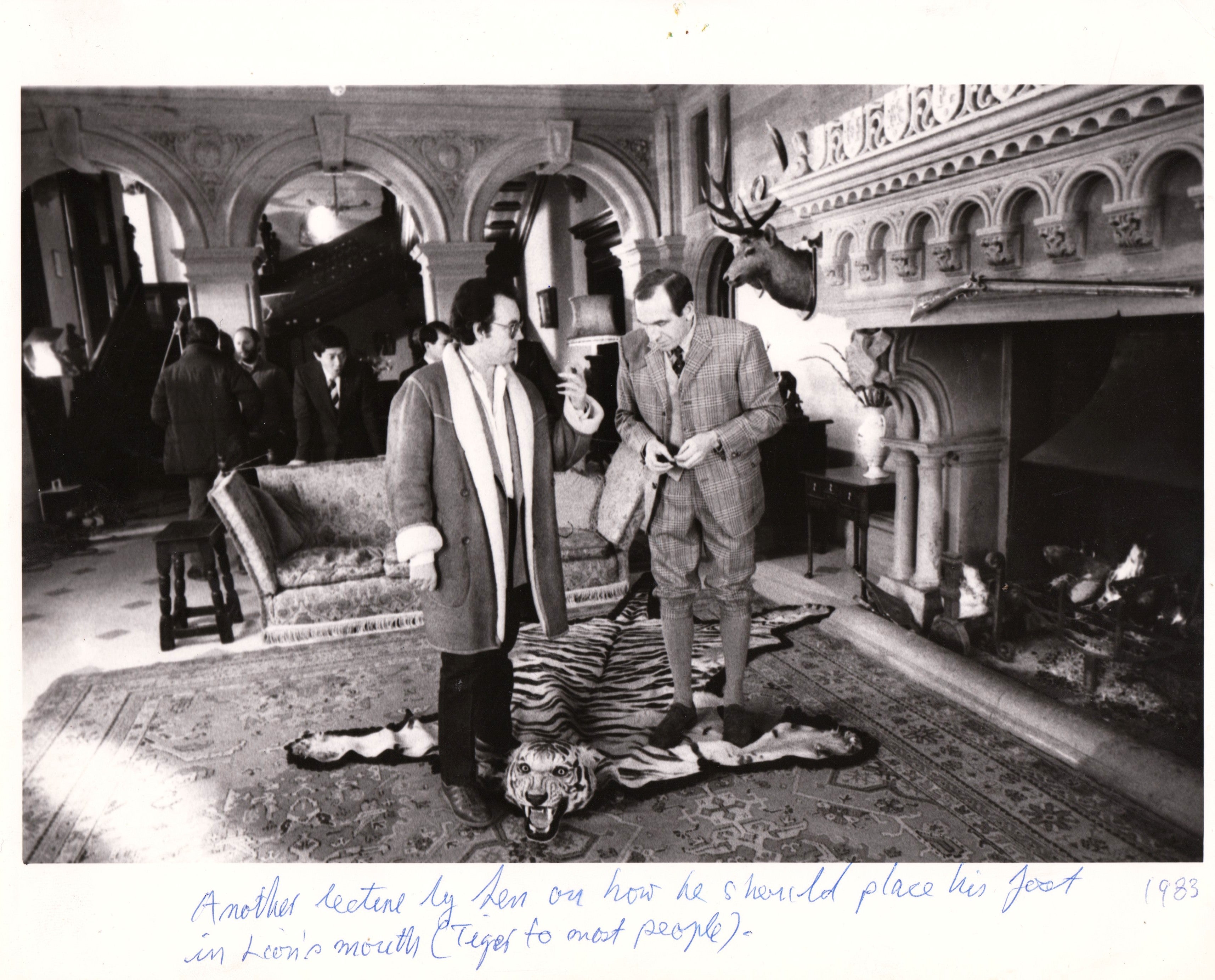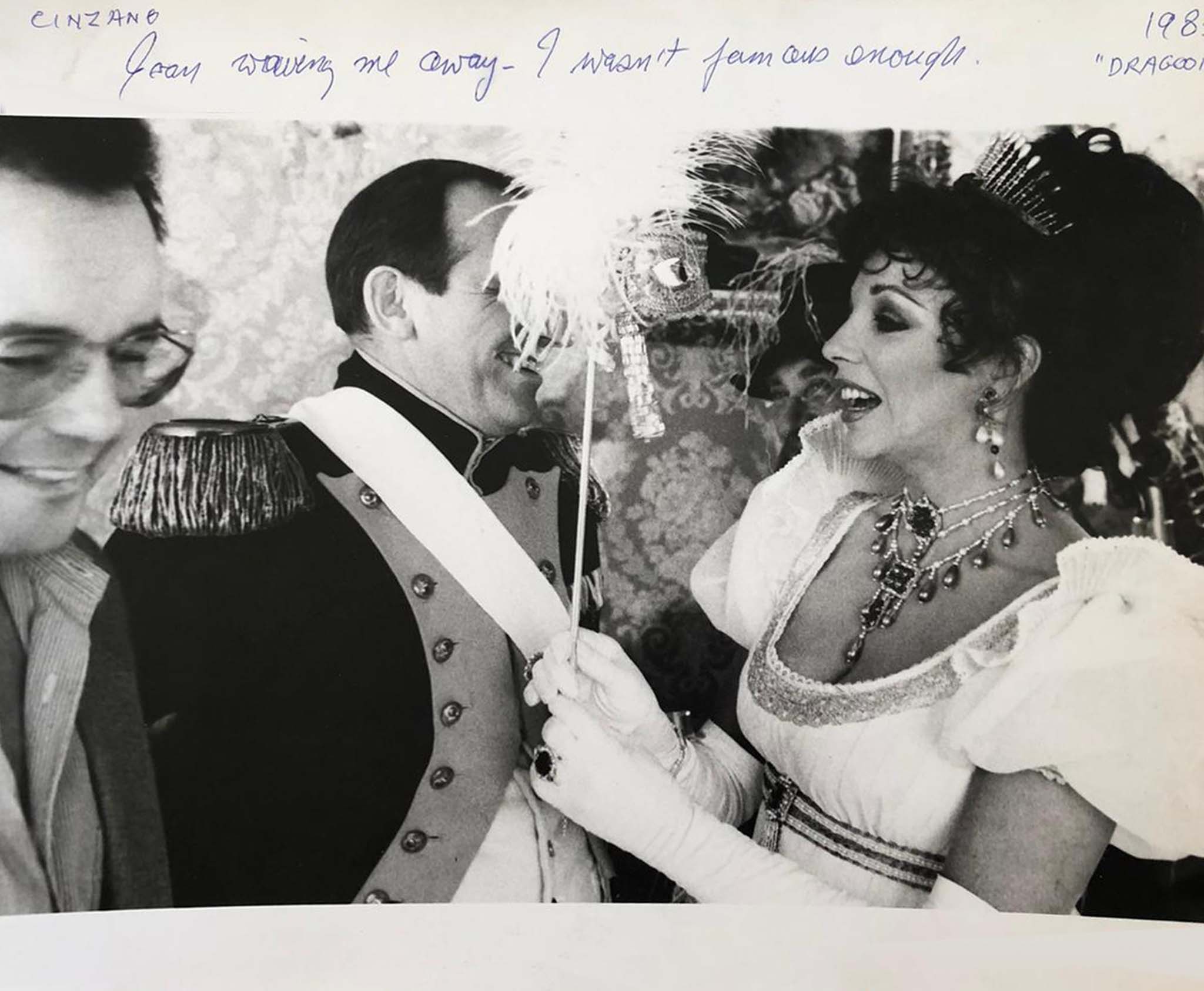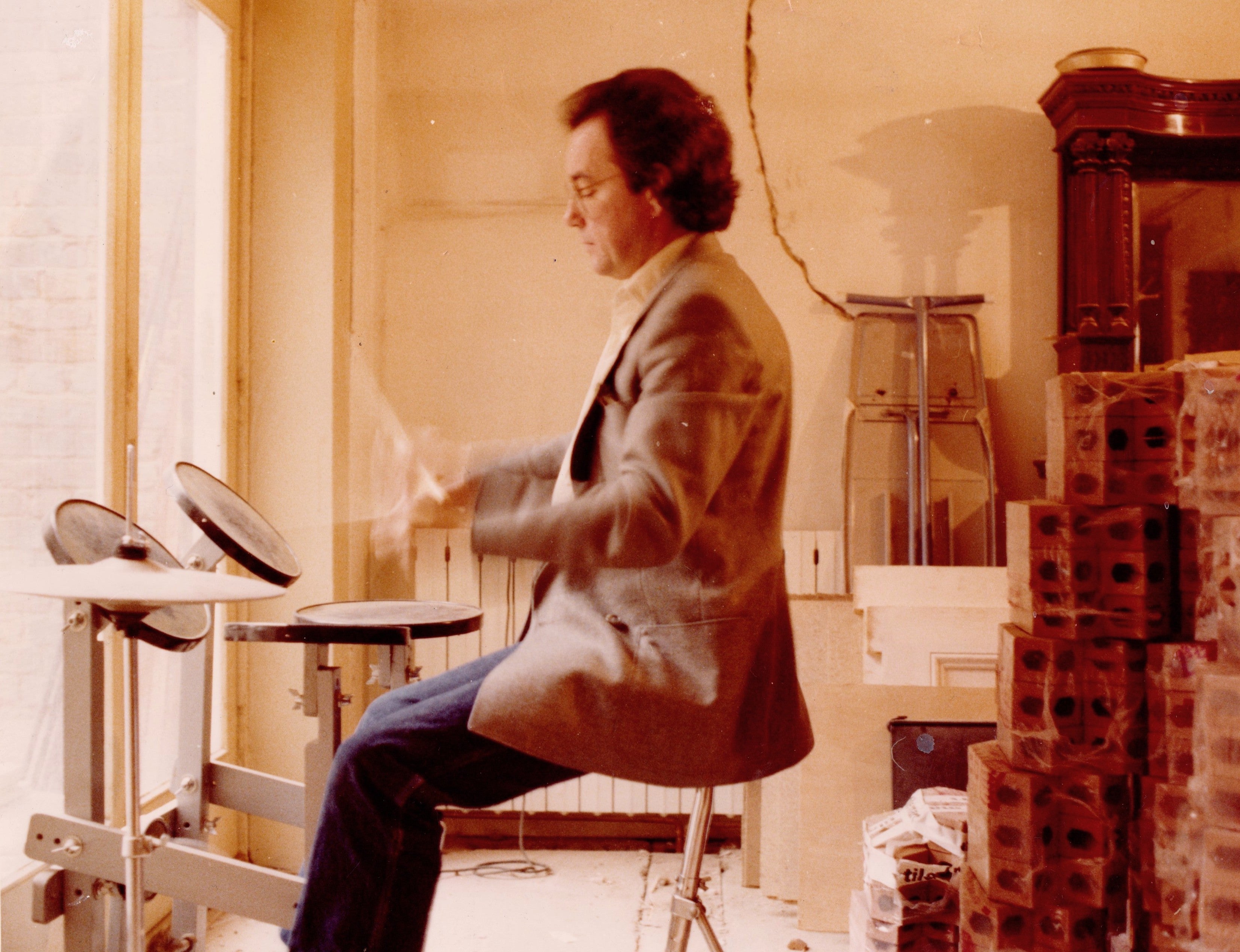Terry Lovelock: Adman whose drinks campaigns brought laughter to millions
A copywriter by day and jazz drummer by night, Lovelock came up with the ‘Heineken refreshes the parts …’ slogan and Leonard Rossiter’s Cinzano spiller
Your support helps us to tell the story
From reproductive rights to climate change to Big Tech, The Independent is on the ground when the story is developing. Whether it's investigating the financials of Elon Musk's pro-Trump PAC or producing our latest documentary, 'The A Word', which shines a light on the American women fighting for reproductive rights, we know how important it is to parse out the facts from the messaging.
At such a critical moment in US history, we need reporters on the ground. Your donation allows us to keep sending journalists to speak to both sides of the story.
The Independent is trusted by Americans across the entire political spectrum. And unlike many other quality news outlets, we choose not to lock Americans out of our reporting and analysis with paywalls. We believe quality journalism should be available to everyone, paid for by those who can afford it.
Your support makes all the difference.Terry Lovelock was a creative advertising copywriter and jazz drummer whose commercials on TV and in cinemas made millions of us laugh and created catchphrases that remain in the national lexicon. He came up with “Heineken refreshes the parts other beers cannot reach,” considered in most polls one of the best British ad campaigns of all time. It also boosted British sales of the Dutch lager hundredfold and helped move the drinking British public away from warm ale.
For those who prefer an aperitif to a lager, or perhaps one before the other, Lovelock was also the writer behind another series of ads considered among the best of the “golden era” of British advertising – for Cinzano vermouth. These featured the comedy actor Leonard Rossiter (of Reginald Perrin fame) and Joan Collins as his wife, unlikely though that seemed. The whole series was based on one of the most basic music hall slapstick jokes: the oafish husband inadvertently spilling his drink on his elegantly-dressed wife. But it captured the nation’s imagination and the series ran for five years, from 1978-83.
Lovelock, who has died aged 84, actually started his career as a drummer, mostly jazz, and continued to play with some of Britain’s swingiest bands throughout his life, often at the famous Ronnie Scott’s jazz club in Soho, while working his day job in advertising. Among many others, he played with saxophonist Graham Bond in the Terry Graham Quartet, with pianist Dill Jones in the Dill Jones Trio and with the Don Rendell Quartet at the Flamingo Club in Soho. With a band called Jazz Five, he was a supporting act for the great Dave Brubeck Quartet during a UK tour, including at London’s Royal Festival Hall. “I had my first baby on the way and needed the nappy money,” he said in a 2011 interview (with himself, on his blog. He didn’t trust other interviewers).

The Heineken ad campaign began in the offices of the advertising agency Collett Dickenson Pearce (CDP) when managing director (now Sir) Frank Lowe told two of his “creatives”, copywriter Lovelock and art director Vernon Howe, to create a new image for the Dutch lager. Instead of the usual complicated brief, Lowe gave them a yellow card with one word on it. “That was the nearest I ever came to suicide,” Lovelock recalled. “Normally you get a brief that’s a few pages of information, but on this occasion all we got was a piece of yellow card that said ‘refreshment’. ”
Read more:
He also recalled Lowe, in his usual forthright manner, telling him as he got into the office lift: “Come back with a campaign concept or don’t come back at all.” “Frank had unleashed his disembowelling knife,” Lovelock recalled. “After about six weeks, I was ready to chuck myself out the window, because I couldn’t think of anything original enough to say.”
At the time, the art director Howe was shooting a commercial for Ford cars in Morocco, so Lovelock joined him in Marrakesh, looking for some inspiration in the sun. At three o’clock one morning, he jumped up from his bed in the five-star La Mamounia hotel and scribbled “Heineken refreshes the parts other beers cannot reach”. By breakfast time, sitting by the hotel pool, he had written the script for the first ad of the campaign, known as “Policemen’s Feet”.
A row of barefoot bobbies just back from the beat are shown with aching feet until they are given glasses of Heineken, their feet start relaxing and they’re able to do the traditional bobbies’ knee-bend. The music from Dixon of Dock Green, and the inimitable voiceover by pianist/comedian Victor Borge, made it an instant hit among the public. Versions of the campaign, initially written by Lovelock and directed by Howe, ran for 20 years on TV, in newspapers and magazines, on posters and at cinemas.
Sir Frank Lowe told The Independent he was flying to Leningrad (now Saint Petersburg) with the Whitbread/Heineken client Anthony Simonds-Gooding when he revealed Lovelock’s idea. “I took an airline sick bag and wrote on it “Heineken refreshes the parts other beers cannot reach,” Sir Frank added. Simonds-Gooding was impressed but subsequent marketing research concluded the commercials were “unlikely to promote awareness of Heineken and interest in drinking it”.
Lowe and Simonds-Gooding ignored the research and the Heineken campaign won a coveted Black Pencil award from Design and Art Direction (D&AD, the organisation which promotes excellence in design and advertising) as “most outstanding TV campaign of 1975”.
When Prince Charles, speaking of his own watercolour works, once wrote: “Painting refreshes the parts of the soul that other activities cannot reach,” Lovelock, with typical humour, wrote to the prince requesting a royal warrant as “purveyor of slogans and aphorisms to HRH Prince Charles”. The prince, with equal humour, replied that Lovelock would need to supply him with such lines for at least three years before a royal warrant could be granted.

Then, from 1978, came the famous Cinzano ads, initially directed by Alan Parker, of Bugsy Malone and Midnight Express fame. It was Lovelock who came up with the idea that the latter should spill his vermouth over his straight-laced wife Melissa, played by Joan Collins. The ads have always featured in polls of the greatest ads of all time. Rossiter, who had been chosen after Sean Connery and Woody Allen turned down the role, played a pretentious oaf who couldn’t stop spilling his drink over her. Off set, he always jokingly referred to Miss Collins as “the prop”.
Cinzano was trying to out-market the popular Martini at the time but ironically viewers were so focused on the humour of the Cinzano ads that they were distracted from which aperitif was being advertised and so sales of the market leader, Martini, actually went up. One of the Cinzano ads from 1982, known as “Tiger’s Head”, was both written and directed by Lovelock. In it, Rossiter jumps with fright after his foot gets caught in the mouth of a tiger’s skin rug while he was entertaining three Japanese businessmen. Inevitably, he spills his drink down his wife’s cleavage. Whereby the Japanese, assuming this was a welcoming ritual, also poured their Cinzanos down her bosom. In 1983, the full series of commercials were voted number one in a TV Times list of the top 10 ads of recent years.
Lovelock’s profile on LinkedIn said much about the man. Under the heading “About,” he wrote: “Impossible to work with but brilliant, original and relentless.” Under “Volunteer experience,” he wrote: “Trimming mum’s rose bushes.” Under languages, it said: “Terry has one language, Cockney.”
Terence Arthur Lovelock was born in Romford, east London, on 7 November 1936, to William Lovelock and his wife Maude (nee Rhynd). He attended Mawney Road school in Romford, where he later described his favourite activities as “football and fighting”. Leaving school at 15, he trained as a printing compositor for six years before opting for his first love, jazz drumming. “I was offered the drum chair with Eddie Thompson, one of our greatest pianists. Eddie was blind and the fact that we lived near each other and I had a car added to the attraction … He always introduced me as ‘one of the finest drummers in the country, not so good in the city’. And he loved to say “We’d like now to play a tune by WC Handy … and we all know it’s nice to have a WC handy.”

Lovelock recalled helping “this scruffy geyser who wasn’t much cop at all [on the drums]”. It turned out to be Ginger Baker, future drummer of Cream alongside Jack Bruce and Eric Clapton. He also recalled playing in “just another dank old basement” in Liverpool in 1960. It was the Cavern club, soon to be made famous by The Beatles.
Terry Lovelock’s wife Pat died in 2019. He is survived by their son Asher, daughters Hannah and Holly, five grandchildren and two great-grandchildren. He died at home in Brighton with Hannah, who had cared for him as his health failed.
Terence Lovelock, adman and drummer, born 7 November 1936, died 25 February 2021
